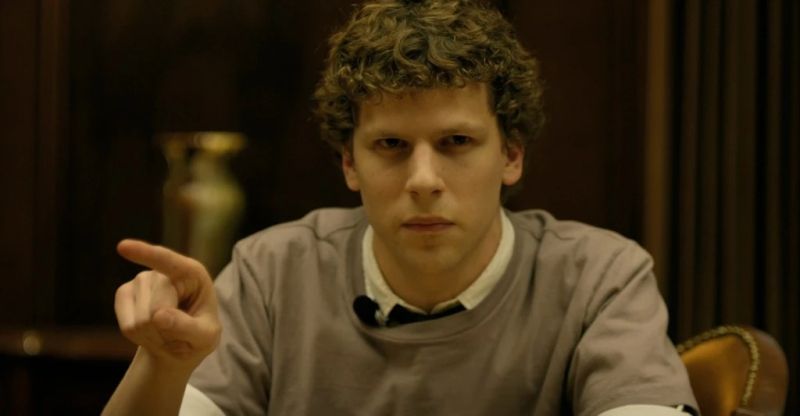How Jesse Eisenberg Got into Acting
Jesse Eisenberg, the Academy Award-nominated actor known for his roles in The Social Network, Zombieland, and Now You See Me, has carved out a reputation as one of Hollywood’s most intelligent and versatile performers. His journey into acting began early, driven by a mix of creativity, ambition, and the need for an outlet to express himself.
A Creative Childhood in New York
Born on October 5, 1983, in Queens, New York, Jesse Adam Eisenberg grew up in a family that valued creativity. His mother worked as a clown at children’s birthday parties, while his father was a college professor.
“I grew up in a very expressive household,” Eisenberg recalled. “We were encouraged to be creative and to pursue what made us happy.”
As a child, Eisenberg was introverted and found it difficult to connect with peers, which led him to seek solace in writing and performing.
“Acting became a way for me to express things I couldn’t articulate in regular conversations,” he explained. “It felt like a natural extension of my personality.”
Finding a Passion for Acting
Eisenberg’s passion for acting emerged during his teenage years. He began performing in school plays and local theater productions, where he discovered a talent for inhabiting complex characters.
“I always loved the idea of stepping into someone else’s shoes and exploring their world,” Eisenberg said. “It gave me a sense of purpose.”
At the age of 16, Eisenberg landed his first professional acting job in the off-Broadway play The Gathering. The experience solidified his love for the craft and motivated him to pursue acting as a career.
Early Success on Television
Eisenberg’s first significant break came in 1999 when he was cast in the short-lived TV series Get Real, alongside Anne Hathaway. The show, which focused on the struggles of a suburban family, allowed Eisenberg to hone his skills and gain experience in front of the camera.
“Get Real was my first taste of working on a set, and it taught me so much about the technical side of acting,” he said.
Though the show was canceled after one season, Eisenberg’s performance caught the attention of casting directors and set the stage for his transition to film.
Making His Mark in Independent Film
Eisenberg’s film debut came in the indie drama Roger Dodger (2002), where he played a socially awkward teenager opposite Campbell Scott. His nuanced performance earned critical acclaim and established him as a rising talent in the indie film world.
“Roger Dodger was such an important project for me,” Eisenberg shared. “It was the first time I felt like I was contributing something meaningful to a story.”
He followed this with roles in The Emperor’s Club (2002) and The Squid and the Whale (2005), further cementing his reputation as a skilled actor with a knack for portraying introspective characters.
Breakthrough: The Social Network
Eisenberg’s career-defining role came in 2010 when he starred as Mark Zuckerberg in David Fincher’s The Social Network. His portrayal of the Facebook founder was both sharp and emotionally complex, earning him widespread acclaim and an Academy Award nomination for Best Actor.
“Playing Mark Zuckerberg was one of the most challenging roles I’ve ever taken on,” Eisenberg admitted. “It required me to think in a completely different way and really dig into the character’s motivations.”
The film’s success catapulted Eisenberg into the spotlight and opened the door to a variety of high-profile projects.
Balancing Blockbusters and Indies
Throughout his career, Eisenberg has skillfully balanced mainstream films like Zombieland and Now You See Me with smaller, character-driven projects such as The End of the Tour and Café Society.
“I’ve always been drawn to stories that challenge me,” he said. “It’s not about the size of the project—it’s about whether it resonates with me on a personal level.”
In addition to acting, Eisenberg has pursued his passion for writing, penning plays and essays that reflect his intellectual curiosity and creative depth.
Conclusion
Jesse Eisenberg’s journey into acting is a testament to his dedication, talent, and love for storytelling. From his early days on the stage to his breakout roles on the big screen, Eisenberg has consistently pushed himself to explore new creative horizons.
As he once said, “Acting is about empathy—it’s about understanding someone else’s perspective and bringing it to life in a way that feels authentic.”
For Eisenberg, that empathy has been the foundation of a career marked by intelligence, versatility, and a commitment to meaningful work.




